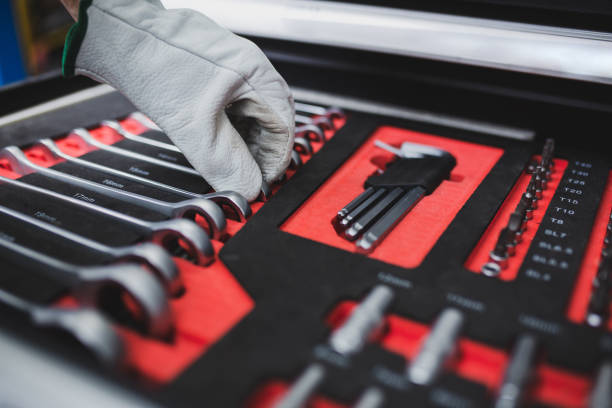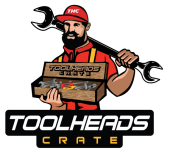A skilled mechanic or a passionate car enthusiast knows that having the right automotive repair tools can make all the difference between a quick fix and a frustrating repair session. Tools aren’t just accessories, they’re the foundation of every successful repair job. With a well-chosen set, you can handle most maintenance tasks efficiently, safely, and with professional results.
The Importance of Quality Tools in Automotive Work
A mechanic’s tools are like a surgeon’s instruments-precision matters. High-quality automotive repair tools help you work faster, reduce the risk of damage, and ensure accurate repairs. Cheap tools might save you money initially, but they often wear out quickly or fail under pressure, causing delays and even safety issues.
Investing in reliable brands pays off over time. When you buy tools made of durable materials like chrome vanadium steel, you’re not just buying convenience-you’re buying long-term performance.
Basic Hand Tools Every Mechanic Needs
Before jumping into advanced gear, let’s start with the basics. These are the fundamental tools you’ll use every single day:
-
Wrenches and Ratchets: Combination wrenches and socket sets are must-haves. They help you loosen or tighten bolts of various sizes quickly and precisely.
-
Screwdrivers: Both flathead and Phillips screwdrivers are essential. Go for magnetic tips and cushioned grips for extra comfort.
-
Pliers: Needle-nose, slip-joint, and locking pliers cover most gripping and pulling tasks.
- Hammers and Mallets: From tapping components to freeing stuck parts, a quality hammer is a mechanic’s trusted ally.
If you’re building your first Automotive Tool Kit, these should be the first items on your list. They form the foundation of any well-equipped garage.
3. Power Tools That Make a Difference
When hand tools aren’t enough, power tools step in to make your work faster and more precise.
-
Impact Wrench: Perfect for removing stubborn bolts and lug nuts, especially on tires.
-
Electric Drill: Helps with drilling holes or driving screws in metal and plastic components.
-
Angle Grinder: Useful for cutting, sanding, or polishing metal parts.
- Air Compressor and Pneumatic Tools: Powering air tools can make repetitive tasks easier and more efficient.
Modern automobile tool kits often include compact versions of these tools, making them ideal for mobile mechanics or those with limited workspace.
4. Diagnostic Tools for Modern Cars
Today’s vehicles are far more complex than those of the past. Electronic systems control everything from the engine to the air conditioning. That’s why diagnostic tools are a must-have for any serious mechanic.
-
OBD-II Scanner: This device plugs into your car’s onboard computer and helps you read error codes. It’s essential for identifying engine or sensor issues.
-
Multimeter: Measures voltage, resistance, and continuity-perfect for troubleshooting electrical problems.
-
Battery Tester: Quickly checks battery health and charging status.
- Compression Tester: Helps you evaluate engine condition by measuring cylinder pressure.
Having these tools at hand saves time and prevents guesswork, especially when dealing with modern automotive systems.
5. Specialty Tools for Precision Work
Sometimes, basic tools aren’t enough. Certain repairs require specialized instruments that help you handle delicate or specific tasks safely.
-
Torque Wrench: Ensures bolts are tightened to manufacturer specifications-critical for safety.
-
Brake Bleeder Kit: Simplifies brake maintenance and fluid replacement.
-
Oil Filter Wrench: Makes removing stubborn oil filters effortless.
-
Spark Plug Socket: Designed to fit snugly around spark plugs without damaging them.
- Jack and Jack Stands: Essential for safely lifting and supporting your vehicle during repairs.
While these may not come standard in every Automotive Tool Kit, they’re worth adding over time as you tackle more advanced repairs.
6. Organization: Keeping Your Workshop Efficient

Having the right tools is only half the battle-keeping them organized is what keeps your work efficient. A cluttered workspace slows you down and increases frustration. Here’s how to stay on top of it:
-
Tool Chest or Cabinet: Invest in a sturdy cabinet with drawers and compartments for different tool types.
-
Pegboards: Great for hanging frequently used hand tools for easy access.
-
Labeling: Label drawers or boxes for quick identification.
- Maintenance: Clean and oil your tools regularly to prevent rust and ensure longevity.
If you love organization, you might appreciate how hobbyists use automotive tool kits to receive new tools and accessories each month. It’s a great example of how subscription-based models can keep your toolkit growing and evolving over time.
7. Building Your Own Automotive Tool Kit
Creating your own custom Automotive Tool Kit is a rewarding process. Instead of buying everything at once, start small with the essentials, then expand as your experience and needs grow. Here’s a simple roadmap:
-
Start with Hand Tools: Focus on wrenches, screwdrivers, and pliers.
-
Add Power Tools: Once you’re comfortable, add a drill and impact wrench.
-
Incorporate Diagnostic Tools: As you work on newer cars, a scanner and multimeter become vital.
-
Upgrade to Specialty Tools: Get a torque wrench, brake bleeder, and jack stands.
- Maintain and Expand: Clean, store, and upgrade tools as needed.
Similarly, if you’re into crafts or side projects, you might find inspiration from services like a woodworking subscription box, which helps enthusiasts steadily build their tool collections in a convenient and exciting way.
8. Safety First: Protecting Yourself and Your Workspace
Every mechanic knows that safety is non-negotiable. A few simple precautions can go a long way:
-
Safety Glasses: Always protect your eyes from flying debris.
-
Gloves: Prevent cuts, burns, and chemical exposure.
-
Proper Ventilation: When using solvents or paints, work in a well-ventilated area.
-
Fire Extinguisher: Keep one nearby for emergencies.
- Clean Workspace: Avoid tripping hazards and slippery surfaces.
Your automobile tool kit should also include basic safety gear like gloves and goggles-it’s just as important as any wrench or socket.
Maintaining and Caring for Your Tools
Good tools can last a lifetime if you take care of them. After each project, wipe your tools clean and check for wear or damage. Store them in a dry place, away from moisture. Periodically inspect electrical cords and replace any frayed or damaged ones immediately.
Routine maintenance doesn’t just keep your automotive repair tools in top condition-it also makes your work safer and more enjoyable.
Conclusion
Having the right automotive repair tools transforms the way you work on vehicles. Whether you’re fixing a flat, replacing brake pads, or diagnosing an electrical issue, the right equipment saves time and effort while improving your results.
Remember to start with the basics, invest in quality, and expand your Automotive Tool Kit thoughtfully over time. Whether you’re an at-home hobbyist or a professional technician, your tools define your craft.
And if you ever find yourself enjoying the process of collecting and maintaining tools-whether it’s for cars, bikes, or even woodcraft-don’t be surprised. The satisfaction of a well-organized toolkit and the joy of fixing something with your own hands are rewards that never get old.



